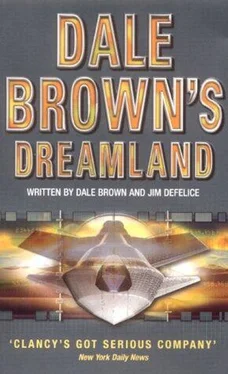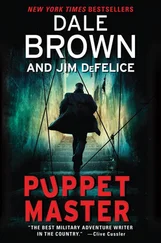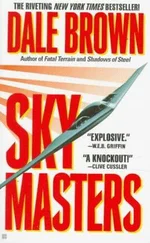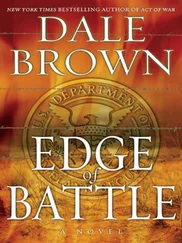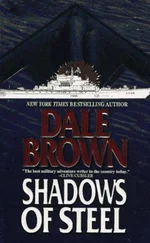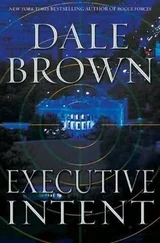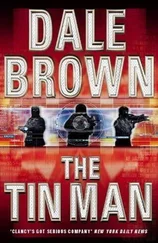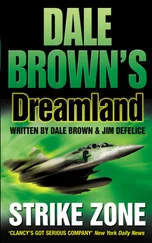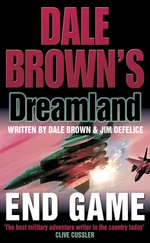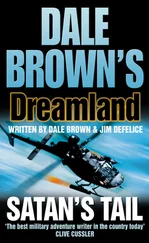“I find that hard to believe,” said Howland. “Maybe we just can’t see them.”
“Yeah.” Gunny pushed himself toward the front of the truck, trying to peek up through the covering there. But he couldn’t find an opening and didn’t want to risk alerting their captors.
“They’re probably sneaking us into one of their prisons,” said Howland. “Maybe they’re staging something near the plane. Whatever that commotion was when we took off from Sudan probably tipped them that they’re under surveillance.”
Gunny wasn’t particularly interested in theories. “We might be able to jump for it,” he suggested.
“Then what do we do?”
“Then we escape.”
“If we’re in Libya,” said Howland, who had worked out their direction en route, “we’re also probably in the middle of the desert. We’ll die of thirst inside a day.”
“Better than dying on TV for them,” said Gunny.
“Maybe,” said the pilot.
Before either of them could say or do anything else, they truck veered sharply to the right. They rolled against each other and then the side. Gunny pushed himself upward just as the truck came to a stop.
“Shit,” he said.
Men were shouting. The tarp and bags were whisked off. Two spotlights clicked on, blinding the Americans.
“This way. Out of the trucks. Quickly,” said a man holding a pistol. “Into the shelter or you will enter as dead men.”
Gunny and the pilot were pulled down by three of four Libyan soldiers, who pushed them toward a set of cement stairs. Perhaps they were in the middle of a desert, but the stairway smelled like a swamp. At the bottom, two men without weapons but with arms the size of elephant trunks muscled them into a room barely the size of a closet. There were no furniture; two bare lightbulbs in steel cages were shone down from the ceiling, eight feet above.
One of the men pointed to the floor, indicating they should sit. Gunny lowered himself reluctantly, wondering if he ought to fight. But even if they made it past these gorillas, there were at least six soldiers with automatic rifles in the hallway outside.
A soldier – this one short and frail-looking – entered carrying two trays of food. Each tray had a large bowl of fruit, another of mushy buckwheat, a third of grilled lamb. There were pitas and large bottles of cold water.
Howland picked up one of the bottles as the steel door slammed shut. They were alone.
“They’d just shoot us,” the pilot told Gunny as he drained about half the bottle. “They wouldn’t waste poison.”
“Yeah. You’re probably right,” said Gunny, still eyeing the food. “Assuming this shit is edible.”
“It’s probably pretty good,” said Howland, poking the meat with the bread. “The condemned always eat well.”
“Yeah. That’s one way of looking at it.” Gunny picked up what seemed to be an orange, peeled away the skin, and took a bite.
It was an orange, or close enough. He devoured it. Then he ate some of the fruit and two pieces of the pita bread. Satiated, he put his back against the cement wall. He’d caught some z’s on the plane and didn’t think he was particularly tired, but he began to drift off. At one point he woke to Howland’s loud snore, then nodded off again.
At some point, he dreamed that the door reopened. The man who had brought them the food reappeared, taking the trays. Then the gorillas appeared and pulled both Gunny and Howland roughly to their feet, pushing them back into the hallway. Gunny seemed to fly to a narrow flight of stairs, descending down another passage covered on all four sides with a thick brown coir carpet.
At the end of the hall, Gunny saw that Howland was with him. They stepped into an eight-by-eight room with smooth whitewashed plaster walls and a thick tan wool carpet. The room had been turned into a television studio – two chairs were set up beneath a lighting bar. Two cameras with camera operators stood opposite them. Monitors were positioned so anyone sitting in the chairs could watch themselves. the six soldiers who had been escorting them filed in behind.
“You will sit in the chairs and respond when questioned,” said a voice from above. “Your trial will begin shortly.”
“Am I dreaming?” Gunny asked Howland.
“No. They’re going to televise this,” said the pilot. “This is happening.”
“Shit,” said Melfi, shaking his head, trying to get his wits back. He was truly awake, all of this was real. “And I always wondered what it would be like to be on TV. Shit.”
Libya
24 October, 0929
It took nearly four hours to cover the roughly two thousand miles from their base in Ethiopia to southern Libya, not counting the aerial refuel shortly after takeoff. Jennifer Gleason and Jeff spent the entire time running through a set of changes for the Flighthawk programming that would keep the U/MFs separated from their mother ship during fail-safe mode. Jennifer’s fingers dashed over the small keyboard at her station, stopping only so she could wade deeper into the notes she’d made on her yellow pads. Jeff helped read back some of the commands and numbers. Most of it was in machine-code assembler level; he didn’t have a clue what he was reading.
Jennifer also had an idea about adding to the compression routines in the command system, in essence widening the communications bandwidth and lengthening the distance they could operate from the mother ship. At one point she started to explain it, but Jeff just waved her off.
“Tell me what to do,” he said. “I don’t have to understand it. There’s not time.”
She gave him a tap on the shoulder and went back to work. They completed the work with fifteen minutes to spare before the drop point.
Jeff climbed aboard the Hawks, running through the preflight checks. He was so tired now that fatigue felt like a piece of clothing around his upper body, heavy and warm.
“Drop point at zero-two,” said Breanna over the Megafortress’s interphone circuit.
“We’re here already?” answered Jeff, honestly surprised.
“Looks like it.”
They ran through the flight and weather data, following their launch protocol precisely. With everything dash-one, Cheshire put the plane into a zero-alpha maneuver, nosing it as she accelerated. The Flighthawks dropped off the wings on cue and Zen began working them onto their flight paths, roaring downward across the still-peaceful Libyan countryside. The sun glinted in his view screen as the planes picked up speed. They were at eighteen and twenty-two thousand feet respectively, well separated in the cloudless sky.
“SEAL commander on the circuit,” advised Cheshire. “Along with Cascade.”
“Hawks are green,” said Zen.
“So’s Big Bear,” said the SEAL commander, using the SEAL team’s call sign.
“Acknowledged.” Jeff thought the voice sounded vaguely familiar, but it belonged to Cascade, a crewman aboard the JSTARS electronic command plane in the southern Mediterranean. Cascade was communicating with Raven and the SEALs through a secure satellite system, linking the feeds from the Flighthawks to the Navy commandos. “Silent com until zero-two.”
The line snapped clear. The gear seemed to have a way of scrubbing sound right out of the wires, as if the airwaves were erased.
Jeff clicked the button to get back to his intercom circuit.
“Twenty minutes,” he told the crew. “Smoke ’em if ya got ’em.”
“As long as they’re not your sneakers,” answered Breanna.
Jeff laughed. She used to say that all the time.
The Osprey’s tilt wings began pitching upward as the craft banked toward the mountain pass. Danny could feel the heat of the desert through the skin of the plane as he waited for it to land. The plan had called for them to land on a small plateau on the other side of the hill, but the pilot had seen someone there as they approached.
Читать дальше
